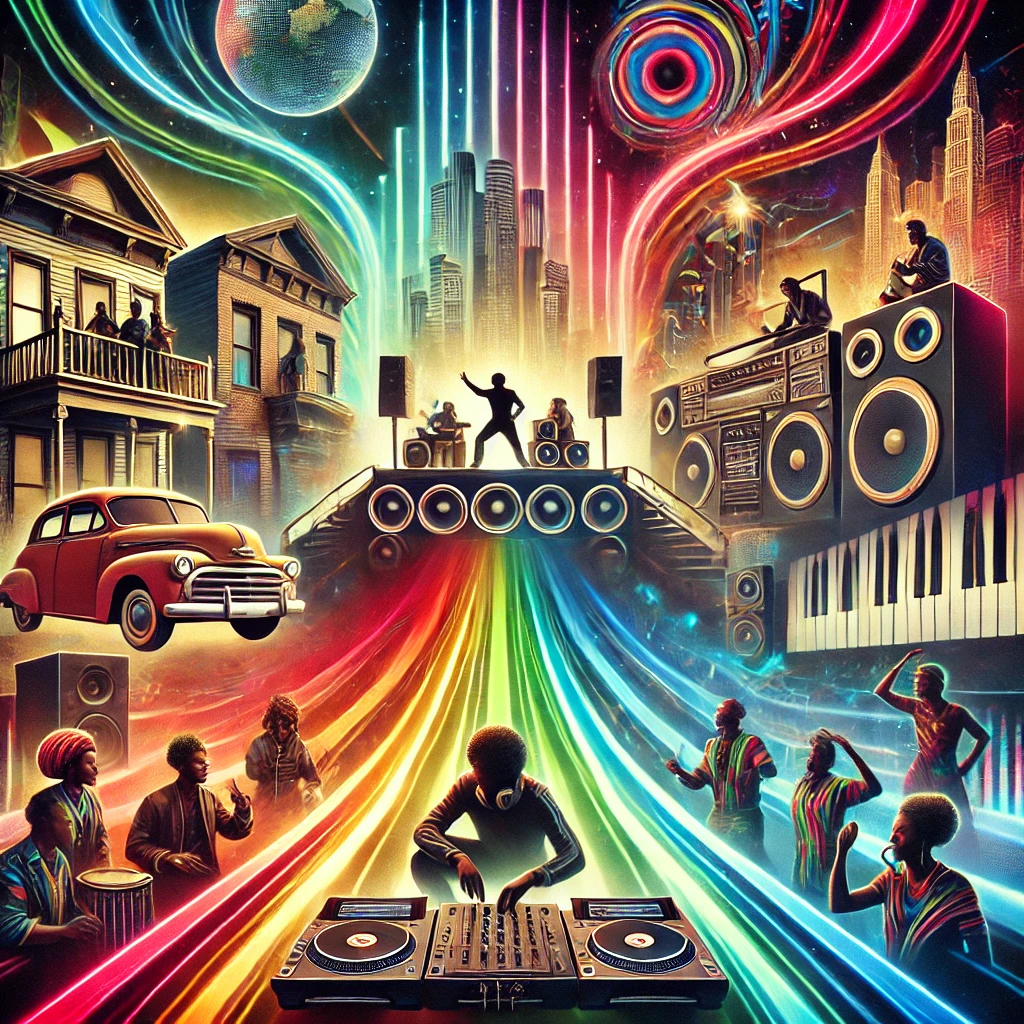

4 mins to read
The Evolution of Dance Music in Black Culture: From Its Roots to SoundAtopia

The Legacy of Dance Music in Black Culture
Dance music is inseparable from Black culture. From the underground clubs of Chicago to the dancehalls of Jamaica, its evolution is a testament to Black innovation and resilience. The genre was born from a necessity—a space where Black and marginalized communities could express themselves freely.
The Influence of DJs: Architects of the Culture
DJs have always been the backbone of dance music. In the ‘70s, pioneers like Frankie Knuckles in Chicago and Larry Levan in New York crafted house and garage music. They shaped the sound of dance floors worldwide. Meanwhile, sound system culture in Jamaica—spearheaded by legends like King Tubby and Kool Herc—set the foundation for DJ-driven music. This later influenced hip-hop, dancehall, and EDM.
From the U.K.’s jungle and grime scenes to South Africa’s Amapiano movement, the role of Black DJs in shaping the global soundscape is undeniable. Today’s icons—Black Coffee, DBN Gogo, and Kaytranada—continue the tradition. They blend history with futuristic sounds that reach every corner of the world.
The Global Expansion of Black Dance Music
What started in Black communities has now become a global phenomenon. House, techno, and Amapiano are celebrated in mainstream festivals like Tomorrowland and Coachella, yet the origins are often overlooked. Despite its influence, Black artists and DJs have had to fight for recognition in spaces they created. The resurgence of conversations around ownership, credit, and cultural appreciation is leading to a long-overdue shift in the industry.
SoundAtopia: Honoring the Past, Elevating the Future
Enter SoundAtopia. It’s a festival that’s not just about music—it’s about culture, history, and legacy. Set to take place in New Kingston, Jamaica, on November 8, 2025, this festival is a tribute to the Black pioneers of dance music. It is also a launchpad for the next wave of DJs.
SoundAtopia isn’t just another festival; it’s a movement. By curating an eclectic lineup of Amapiano, Afrobeats, House, Dancehall, Hip-Hop, and R&B DJs, it creates a space where the essence of Black dance music is celebrated in its purest form. Each DJ brings something unique. Whether it’s a deep-rooted sound system heritage or a fresh, genre-blending approach that keeps dance music evolving.
The Future of Black DJs: Breaking Barriers, Building Bridges
With platforms like SoundAtopia pushing the culture forward, the next generation of Black DJs has an opportunity to not just participate but lead. Technology, streaming, and social media have democratized music in ways unimaginable decades ago. This allows independent artists to reach global audiences without major industry gatekeepers.
But there’s still work to be done. Representation, ownership, and fair recognition remain central issues. Festivals like SoundAtopia provide a stage for talent that mainstream events often sideline. This makes sure the culture remains in the hands of those who built it.
A Movement, Not a Moment
Dance music in Black culture has never been a trend—it’s a lifestyle, a legacy, and a force. From the origins of house and techno to the rise of Amapiano, its story is one of innovation and perseverance. SoundAtopia is more than a festival—it’s a cultural statement. It is a bridge between the past and the future, ensuring that the pioneers and the next wave of DJs get their flowers.
Black dance music has shaped the world. Now, it’s time to make sure the world never forgets where it came from.
